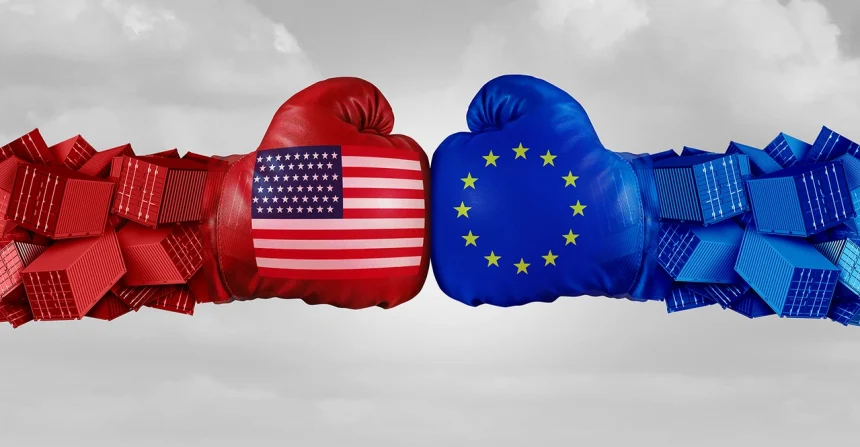The European Union is bracing for a potential trade war with the United States after President Donald Trump imposed tariffs on steel and aluminium imports. European Commission President Ursula von der Leyen has promised a robust response to protect European businesses and consumers.
“Unjustified tariffs on the EU will not go unanswered – they will trigger firm and proportionate countermeasures. The EU will act to safeguard its interests,” von der Leyen stated on Tuesday.
Trump’s orders, signed late Monday, impose a 25% tariff on all steel imports and aluminium entering the U.S., with the new rules set to take effect on March 4. The move has sparked widespread concern across the EU, where officials are scrambling to assess the potential damage and formulate a unified strategy.
EU Considers Retaliatory Measures
While von der Leyen did not specify the exact measures the EU would take, one possibility is the reinstatement of tariffs on American products, similar to those imposed in 2018. These tariffs, which targeted iconic U.S. goods such as Bourbon, motorcycles, and orange juice, were suspended following a deal between von der Leyen and current President Joe Biden. The suspension is set to expire at the end of March, providing a potential window for renewed action.
Maros Sefcovic, EU trade leader, characterised the situation as a “lose-lose scenario,” emphasising the mutual harm that trade wars inflict. The EU is now meticulously analysing the implications of the US tariffs to determine the most effective course of action.
Market Volatility and Economic Concerns
The announcement of the tariffs has already sent ripples through global markets. Gold prices surged to a record $2,942.70 in early trading on Tuesday as investors sought safe-haven assets amid the uncertainty. The move underscores the broader economic anxieties triggered by the prospect of escalating trade tensions.
U.S. and EU Trade Disputes
This isn’t the first time the U.S. and EU have clashed over trade. In 2018, Trump’s initial imposition of steel and aluminium tariffs led to a similar round of retaliatory measures. While those tariffs were later replaced with import quotas under the Biden administration, the underlying tensions remained.
Read Also: Trump’s Trade Tariffs and the African Market: A Looming Economic Storm for Nigeria
European steelmakers have already felt the impact of these trade disputes. Steel exports to the U.S. declined from 3.2 million metric tonnes in 2018 to 2.2 million in 2024. The industry now fears that the 15 million tonnes of steel the U.S. imported from other countries last year could be diverted to Europe, further depressing prices and harming domestic producers.
Impact on Workers and Consumers
The implications of this trade dispute extend beyond government policy and market fluctuations. Ultimately, it’s the workers in the steel and aluminium industries and consumers who will bear the brunt of these tariffs. Higher steel prices could translate to increased costs for everything from cars to construction materials, potentially impacting jobs and economic growth.
European trade ministers are scheduled to convene online on Wednesday to discuss the EU’s response. The coming days and weeks will be critical in determining whether a full-blown trade war can be averted. The EU faces the delicate task of defending its interests while seeking a diplomatic solution that avoids further escalation.









